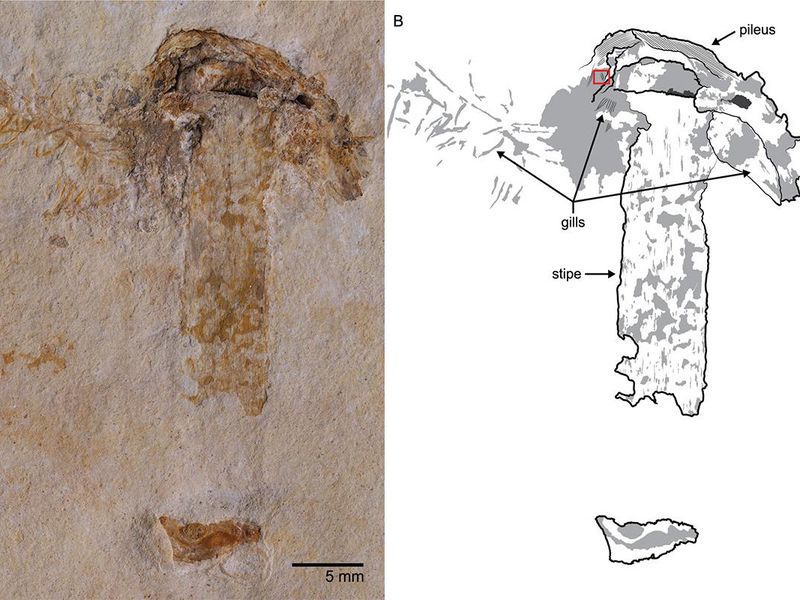It is a rather extraordinary find: Mushrooms are rarely preserved in the fossil record. They don’t live for very long, for one, and their soft and squishy bodies tend to decay quickly. Only ten fossilized mushrooms have ever been discovered, with the next oldest dating back 99 million years.
Heads’ fossilized fungus is also unique because of the way in which it was preserved. All of the other known fossil mushrooms were engulfed by sticky tree resin, which later hardens into amber. But the recently discovered mushroom was subjected to a more dramatic journey.
As Laura Geggel explains for Live Science, the mushroom once grew on Gondawa, an ancient supercontinent that encompassed present-day South America, Africa, Arabia, Madagascar, India, Australia and Antarctica. It likely fell into a river and drifted along to a salty lagoon, where it sank and was covered by sediment. Over millennia, its tissues were replaced with the mineral pyrite, which in turn transformed into the mineral goethite—and voila, the fossil was formed.
“The fact that this mushroom was preserved at all is just astonishing,” Heads said in a University of Illinois press release. “When you think about it, the chances of this thing being here—the hurdles it had to overcome to get from where it was growing into the lagoon, be mineralized and preserved for 115 million years—have to be minuscule.”
Most importantly, as the oldest member of its group, the find helps calibrate what's known as the "molecular clock," a method that uses the rate of mutations in gene sequences to deduce how species evolve. This so-called clock is calibrated with discoveries like the oldest mushroom, which can place more definitive dates on when certain groups begin.
Heads and his team of researchers describe this marvelous mushroom in the journal PLOS One. The fungus, they write, had gills, or thin structures that hang from the cap of a mushroom. And they gave a fitting name to this plucky little fungus: Gondwanagaricites magnificus, or “magnificent fossil mushroom from Gondwana.”
